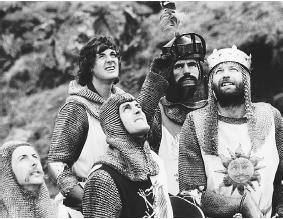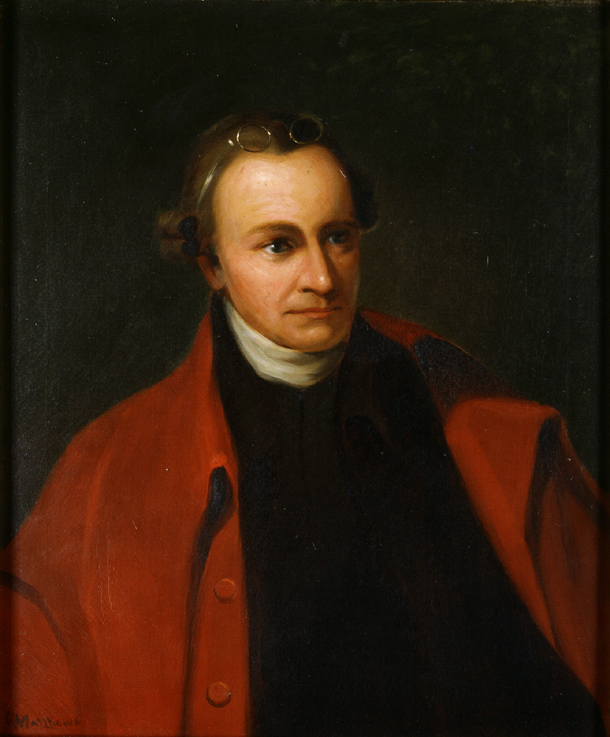 On the 150th anniversary of the United States Supreme Court's decision in Dred Scott v. Sandford, it seems appropriate to take a whack at the question, Was the Constitution Pro-Slavery?
On the 150th anniversary of the United States Supreme Court's decision in Dred Scott v. Sandford, it seems appropriate to take a whack at the question, Was the Constitution Pro-Slavery?
I tend to think of this not as one question that has a definitive answer, but rather as a series of issues that can be examined from different standpoints, collectively yielding a richer understanding of the relationship between slavery and the Constitution.
The two authors I've read who have seriously considered the relationship between the Constitution and slavery are Don Fehrenbacher, in The Dred Scott Case: Its Significance in American Law and Politics, and Akhil Amar, in America's Constitution: A Biography. Fehrenbacher, a historian, sees the Constitution as more slavery-neutral. He emphasizes, for example, the fact that the Constitution went out of its way not to endorse the concept of slaves as property. Rather, the Constitution uniformly refered to slaves as "Persons." Similarly, Fehrenbacher would emphasize that nothing in the Constitution required the States to maintain slavery (or required the Federal government to establish or permit slavery in the Territories), nor did the Constitution preclude blacks from being citizens, or even enjoying civil rights.
Amar, on the other hand, a law professor, sees the Constitution as a more pro-slavery document. He argues, for example, that the effect of the three-fifths clause was pervasive and that its effect was malignant because, structurally, it infected all three branches of the Federal government and gave the slave states a disproportionate advantage in all three branches: the Legislative Branch because the rule directly affected and increased the representation of the slave states in the House; the Executive Branch via the Electoral College (Article II, Section 1, Clause 2: "the Number of Electors [is] equal to the whole Number of Senators and Representatives to which the State may be entitled in the Congress"); and the Judicial Branch via the Executive Branch (which nominates judges).
The interesting thing is that Fehrenbacher and Amar do not necessarily disagree on particulars. It is, rather, that they approach the issue from different angles and focus on and emphasize different aspects. In a real sense, they may well both be correct; there is no one correct answer. Their differing views also suggest that there may be many other ways to approach the central question that will be illuminating.
Because Amar makes the more technical argument, let's take a closer look at some of his points.
The House
Although the effect of the Three-Fifths Clause is obvious, Professor Amar points to other provisions that further skewed the House in favor of pro-slavery interests.
Article I, Section 2 addressed how to apportion House seats among the States (interstate allocation). However, it said nothing about allocation of House seats within each State (intrastate allocation). That is, except to the extent that the Republican Form of Government Clause might be relevant, nothing forbade the States from drawing Congressional Districts in grossly disproportionate ways.
In fact, the southern States repeatedly used this freedom to skew their Congressional representation in favor of slaveholding areas and interests:
Unconstrained by any explicit intrastate equality norm in Article I, and emboldened by the federal [3/5] ratio, many slave states in the antebellum era skewed their congressional-district maps in favor of slaveholding regions within the state. Thus the House not only leaned south, but also within coastal slave states bent east, toward tidewater plantations that grabbed more than their fair share of seats. After the 1820 census, Virginia carved itself into twenty-two House districts, one of which encompassed Richmond in the plantation belt and another of which surrounded Wheeling on the state’s northwestern rim. Although the Richmond district had less than half the Wheeling district’s free population – 16,000 compared to 42,000 – each sent one member to the House. In effect, Richmond’s master class got full (five-fifths) credit for their 25,000 slaves, as compared to 2,000 slaves in the Wheeling region. Overall, the fifteen Virginia districts with the highest percentage of slaves averaged only 25,000 free folk compared to an average 37,000 in the other districts, all in the west. Meanwhile, North Carolina opted for a pair of high-slaveholding districts averaging only 24,000 free persons, five moderate-slaveholding districts averaging 33,000 free persons, and six low-slaveholding western districts averaging 38,000 free persons. South Carolina’s numbers looked even worse. Other large differentials distorted the House maps in other states and in other decades. The very foundation of the Constitution’s first branch was tilted and rotten.
Akhil Amar, America’s Constitution at 97 (footnote omitted).
The Senate
Although on their face provisions of the Constitution relating to slavery are slavery-neutral, Professor Amar identified an "as-applied" bias.
Article I, Section 3, Clause 1 provided that Senators would be chosen by the State legislatures. Here, too, structural pro-slavery bias appeared, because southern legislatures tended to be dominated by pro-slavery interests. Indeed, there is evidence that southern States used the three-fifths clause to legitimate the dominance of those interests:
Even state legislatures began to mimic the Article I model. In 1798, Georgia decided to use three-fifths as the apportionment ratio for its own state house, thereby giving plantation belts extra credit within the state. Thus one inapt borrowing begot another. In the years following the Missouri Compromise, Virginia reformers’ plans for reapportionment based on white population were defeated by opponents who argued that such plans would undermine the case for three-fifths at the federal level. Then came new apportionment rules in Louisiana, Florida, Maryland, and North Carolina, all of which started to count slaves at three-fifths or more in one or both houses of their legislatures, even though no slave state had done so prior to 1787. In turn, these slavery-skewed state legislatures chose the men who would represent these states in the U.S. Senate. By the 1840s, the corrosive effects of the three-fifths clause had seeped into every branch of the federal government.
Id. at 98 (footnotes omitted).
This may help explain why it was the Senate, rather than the House, that tended to block anti-slavery initiatives. So long as the division of Senators between free and slave states was anywhere near to close, it was recognized that senators elected by skewed southern legislatures were, and would continue to be, solidly pro-slavery. Northern senators were not similarly chosen by state legislatures apportioned to maximize anti-slavery interests. Northern senators with national ambitions, in particular (and how many Senators don't have national ambitions?), knew that they would have to give way on slavery-related issued. Thus, southern Senators would generally be able to control the slavery agenda.
The Jeffersonian Republican Party Caucus
It is not clear that the Constitution itelf should be blamed because proslavery interests were able to manipulate provisions that were neutral on their face. This seems even more clearly the case in discussing the pro-slavery bias of party caucus and convention rules. These rules may have interacted with the Constitution, but I am hard-pressed to identify the Constitution as the villain, particular where the Founders expected, or at least hoped, that parties would not exist, and certainly had no way of foreseeing the particular caucus and convention schemes that ultimately evolved.
As of 1787, “factions” and “parties” were dirty words. Although Madison, following David Hume, thought factions were probably inevitable, he hoped that multiple, local interests would cancel each other out and thus fail to coalesce into national factions that would disrupt the federal government. Even he did not foresee that within five years two national parties would begin to form, much less that party politics would quickly come to dominate the national political landscape. Nonetheless, the rise of the party that Madison and Jefferson formed, the Jeffersonian Republicans, and the methods that it used to select presidential candidates, interacted with the Constitution to magnify the power of the slave states in the selection of presidential nominees and thus presidents (since after 1800 the Federalists were an annoyance at best).
The method that the Republicans used to select their presidential candidates was the Republican Congressional Caucus. The Caucus consisted of members of the party sitting in both houses of Congress – both the House and the Senate.
The inherent structure of the caucus interacted with the Three-Fifths Rule and intra-state allocation to give the slave states additional power. Although the North was the majority section in the House as well as in the nation, that was not the case in the Caucus. From the Republican Party’s birth in the 1790s through 1816, the slave states always elected more Republicans than the free states.
Free states first obtained a slim, four-vote majority in the Caucus in 1817. (Without the effect of the Three-Fifths Rule, the northern majority would have been 19 or 20 votes.) However, in 1820 the party was running an incumbent (James Monroe of Virginia), and the Caucus system died as a method for presidential nominations after 1824.
In 1824, the Caucus nominated Georgian William Crawford, even though he had been disabled by a severe stroke earlier in the year. Many refused to accept the result, and a confused multi-candidate election ensued. No candidate obtained a majority of votes in the Electoral College. Selecting among the top three finishers, the House eventually elected John Quincy Adams president over Andrew Jackson and Crawford. Adams was the first northerner to hold the position since his father had been elected in 1796, twenty-eight years earlier. "King Caucus" was almost universally condemned as an antidemocratic, aristocratic cabal and was abandoned as a method for nominating presidential candidates.
The new Jacksonian Democratic party, however, thereafter replaced the Caucus with another device that buttressed the strength of the slave states in presidential elections.
The Democratic Party Convention Two-Thirds Rule
In 1828, the Jacksonian Democrats swept into office. Andrew Jackson won 92% of the electoral vote in the slave states, 49% of that vote in the north. The Democrats, who had denounced the Caucus, replaced it with the party convention, in which all states were represented by party delegates in proportion to each state’s number of votes in the Electoral College (which itself gave the slave states undue influence). Beginning with the vice presidential nomination in 1832 (Andrew Jackson’s renomination that year never being in question), the Democrats adopted a rule providing that candidates would receive the nomination only if they received the votes of two-thirds, rather than one-half, of the convention delegates. The rule proved extremely durable. The Democrats did not abandon it until 1936.
The Two-Thirds Rule gave the slave states in the Democratic Party a veto over all presidential and vice presidential nominations, and they knew it. Most notably,in 1844 Martin Van Buren of New York entered the convention with a majority of the delegates. Van Buren, however, had failed to endorse the proposed annexation of Texas. Pro-Texas men blocked Van Buren’s nomination, which eventually went to expansionist James K. Polk of Tennessee, who won the election over Whig Henry Clay.
The lesson was not lost. Northern politicians recognized that the way to the presidency lay through the south. While northern Democrats could win the nomination, they had to be doughfaces whose views were acceptable to the south: Lewis Cass of Michigan (the inventor of “popular sovereignty”, nominated 1848, lost to Zachary Taylor), Franklin Pierce of New Hampshire (elected 1852) and James Buchanan of Pennsylvania (elected 1856). In 1860, of course, Stephen Douglas of Illinois proved unacceptable to the southern delegates and the party ruptured. As I recall, some other guy won the election that year.
Dred Scott v. Sandford
In deciding whether you think the Constitution is pro-slavery or not, you may consider many things. But please, do NOT hold against the Constitution the conclusions that Justice Taney reached in Dred Scott v. Sanford.
There seems to be a widespread misperception that Justice Taney was dragged against his will to the conclusions he reached by the text and history of the Constitution. Proponents of a "living Constitution" sometimes seem to suggest that the result in the case is proof that textualism and original understanding are morally bankrupt. In fact, exactly the opposite is true: Justice Taney reached the conclusions he did only by ignoring and distorting both the plain meaning of the text of the Constitution and the relevant history.
This post is long enough without a long diatribe about Dred Scott. I will content myself at this point with the verdict of Professor David P. Currie of the University of Chicago Law School:
From a lawyer's viewpoint Scott was a disreputable performance. The variety of feeble, poorly developed, and unnecessary constitutional arguments suggests, if nothing else, a determination to reach a predetermined conclusion at any price.
David P. Currie, The Constitution in the Supreme Court: The First Hundred Years, 1789-1888 (Univ. of Chicago Press 1985, 1992) at 272.
If you are interested in Dred Scott, I have been posting a number of entries about pre-Dred Scott slave freedom cases decided by the Supreme Court of Missouri beginning in the 1820s. In the Links List at the right, click on Winny v. Whitesides, Merry v. Tiffin, Julia v. McKinney , Rachael v. Walker, or Scott v. Emerson (the caption of the decision involving Dred Scott issued by the Supreme Court of Missouri in 1852, which made the 1857 United States Supreme Court decision possible).
In an effort to avoid publishing the same stale pictures that everyone else posts when discussing the case, I have instead included a picture of Montgomery Blair, one of Dred Scott's attorneys before the United States Supreme Court.



















